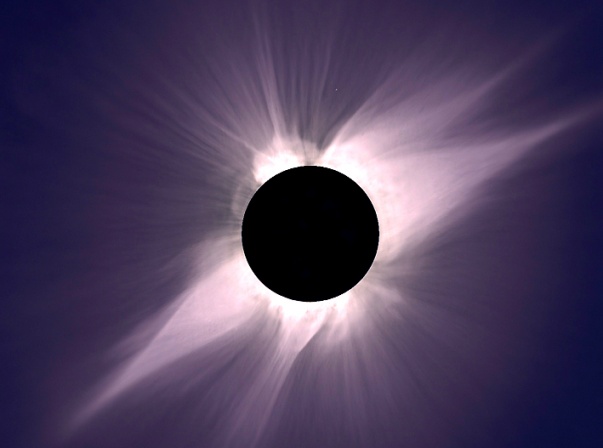
|
Credit: High Altitude Observatory,
NCAR
Explanation:
The sun's corona
is a tenuous outer atmosphere composed of streams of
energetic charged particles, but it is only
easily seen from Earth during a
total solar eclipse.
For example, this 1991
image of totality from atop Mauna Kea,
Hawaii forms a
fleeting snapshot of
the mysterious corona's beautiful, intricate structures and streams.
However in space, instruments
can use occulting disks to simulate eclipses
and more readily monitor the corona beyond the sun's edge.
Combined observations from the space-based
SOHO UCVS and
shuttle-borne
Spartan 201 experiments
have recently contributed to a major advance in
understanding the high-speed component of the wind of particles in the corona.
They reveal evidence for
magnetic waves within the corona itself that push
solar wind particles along, like an ocean wave gives
a surfer a ride.
Surprisingly, heavier charged particles can
surf the magnetic waves faster -
oxygen ions were found to achieve speeds of up to 500 miles per second,
faster than the lighter hydrogen ions which make up most of
the solar wind.
|
January February March April May June July August September October November December |
| ||||||||||||||||||||||||||||||||||||||||||||||||
NASA Web Site Statements, Warnings, and Disclaimers
NASA Official: Jay Norris. Specific rights apply.
A service of: LHEA at NASA / GSFC
& Michigan Tech. U.
Based on Astronomy Picture
Of the Day
Publications with keywords: Sun - corona - solar wind
Publications with words: Sun - corona - solar wind
See also:
